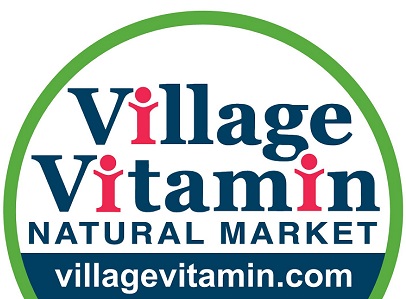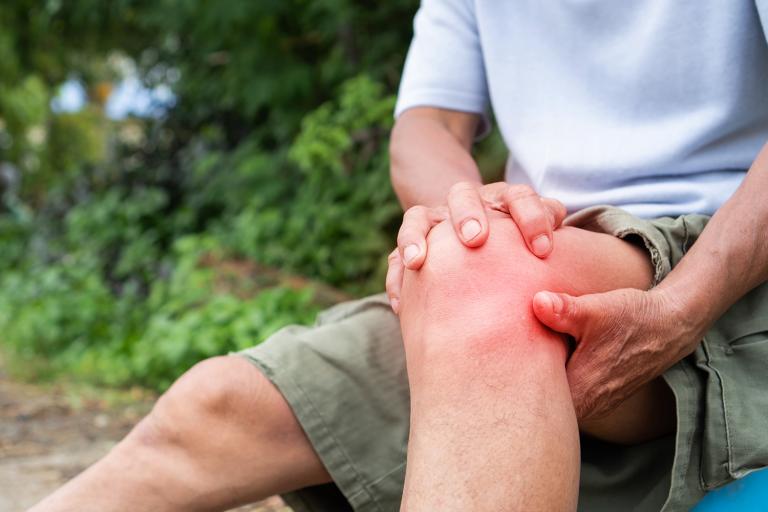Whether your challenge is rheumatoid arthritis, lupus, or osteoarthritis, there are natural strategies that can help you manage joint pain.
Take charge of your wellness by trying these tips, and see which work best for you.
Nutrition for Joint Health
-
Essential Fatty Acids
Not all fat is bad for you. Essential fatty acids (EFAs) are just that—essential to your health. EFAs appear to relieve arthritis pain and fight inflammation. The gamma linoleic acid (GLA) in omega 6 helps inflammatory arthritis (including rheumatoid arthritis, lupus, and psoriatic arthritis, a combination of psoriasis and arthritis) as well as osteoarthritis.
EFAs must come from our diet or supplements, as our bodies can’t make them on their own. Most appear in the form of omega-3 fatty acids (from cold-water fish like wild salmon or fish oils, as well as black walnuts and flaxseed) or omega 6s (raw nuts, as well as sesame and grape seed oils). Eggs from hens that have been fed special feed are also a good source of omega 3.
-
Olive Oil
A recent study shows that olive oil contains a natural anti-inflammatory ingredient that may relieve pain. Test results find that a daily 1.75-ounce dose of freshly pressed, extra-virgin olive oil equals about 10 percent of the ibuprofen dose recommended for adult pain relief.
Like aspirin, which researchers believe benefits health over time if taken regularly, consuming low daily doses of olive oil may relieve chronic inflammation, which is thought to play a role in many diseases from cancer to heart disease.
-
Antioxidants
To ensure you are getting enough antioxidants like selenium and vitamins E and C, which fight the cellular damage that can contribute to joint pain, eat plenty of fruits, veggies, and whole grains.
-
Vitamin C
Good sources of vitamin C include red peppers, oranges, asparagus, and broccoli, or take 500 to 1,000 mg of vitamin C in supplement form.
-
Vitamin E
Vitamin E can be found in green beans, Brussels sprouts, seeds, and nuts. An often-recommended dosage of E is 400 to 800 IU (international units) per day in supplement form.
-
-
Foods
Studies indicate that these foods may help in the battle against joint pain:
- anchovies
- apples
- broccoli
- cantaloupe
- curry
- fish
- garlic
- citrus fruits (e.g. grapefruit)
- grapes
- mango
- nuts
- oysters
- papaya
- leafy greens (e.g. spinach)
Glucosamine and Chondroitin Sulfate
What Are They?
Glucosamine and chondroitin sulfate are found naturally in our body’s cartilage, which acts as a cushion between bones inside joints.
As Supplements
Both glucosamine and chondroitin come in capsule, tablet, powder, or liquid form and are often taken in combination with each other or with other dietary supplements.
They are not fast acting, so expect to wait a few days to several weeks before you see improvement.
Where Do They Come From?
- Glucosamine is sourced from crab, lobster, or shrimp shells.
- Chondroitin comes from bovine or shark cartilage, or can be made in a lab.
What Are They Used For?
-
Relieving Pain from Osteoarthritis
People with osteoarthritis, a disease caused by abnormal wearing down of joint cartilage, often take glucosamine and chondroitin sulfate to relieve pain.
Studies show that some people with mild to moderate osteoarthritis who take either substance experience a similar level of pain relief as when they take nonsteroidal anti-inflammatory drugs (NSAIDs—pronounced n-seds) such as ibuprofen and aspirin.
-
Restoring and Protecting Cartilage
Research indicates that these supplements may build and restore joint cartilage, and chondroitin may protect existing cartilage from premature degeneration.
Precautions
Consult your doctor about appropriate dosages. The amount used in studies is typically 1,500 mg of glucosamine sulfate and 1,200 mg of chondroitin sulfate per day.
-
Diabetes
People with diabetes should consult their doctor before taking glucosamine because it may influence blood sugar levels.
-
Shellfish Allergies
Those allergic to shellfish should not take glucosamine without a doctor’s consent, as it is made from shellfish covering.
-
Pregancy and Children
Children, pregnant women, and women who could become pregnant should not take these supplements since their effects on a child or on a developing fetus have not been studied long enough.

